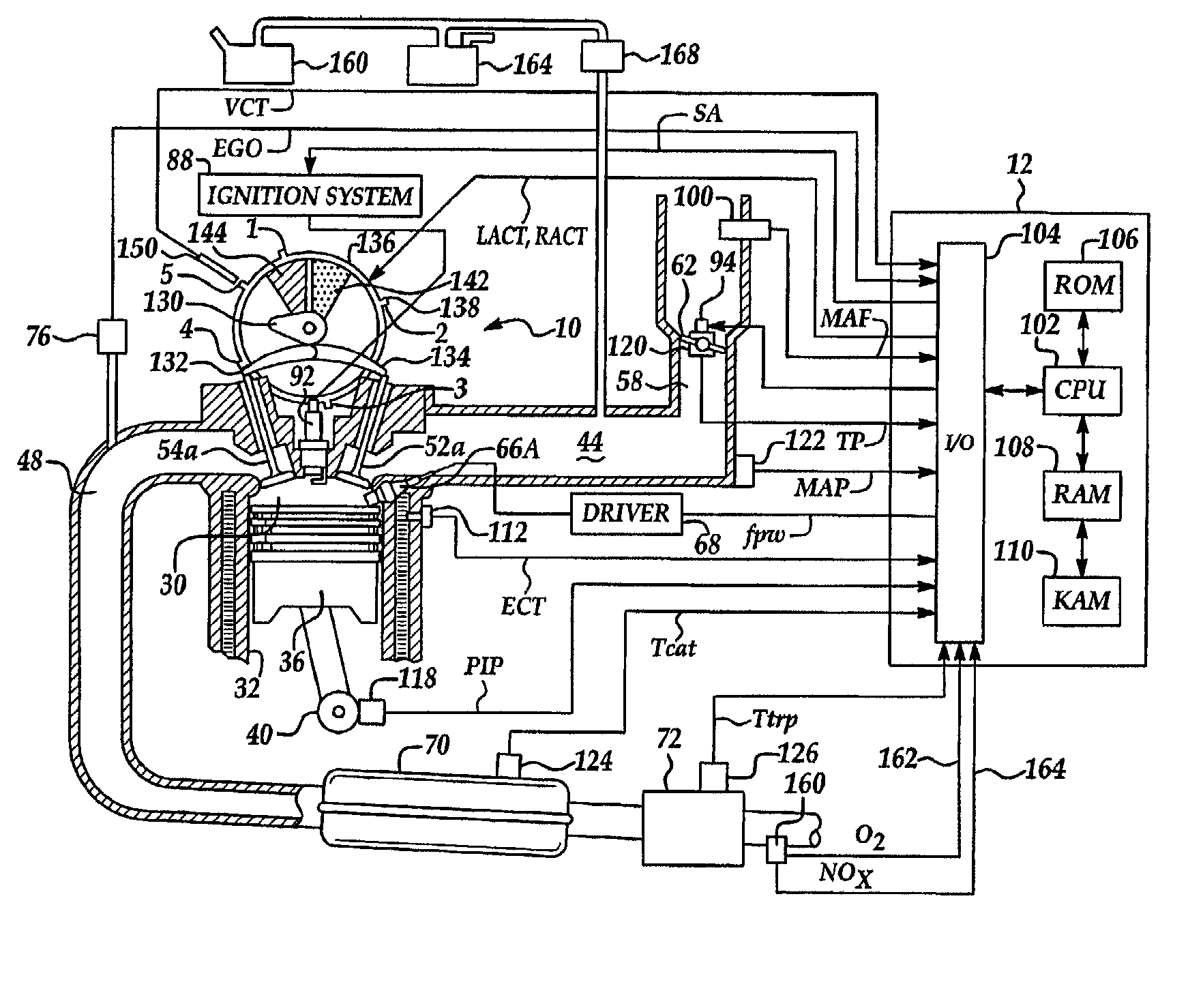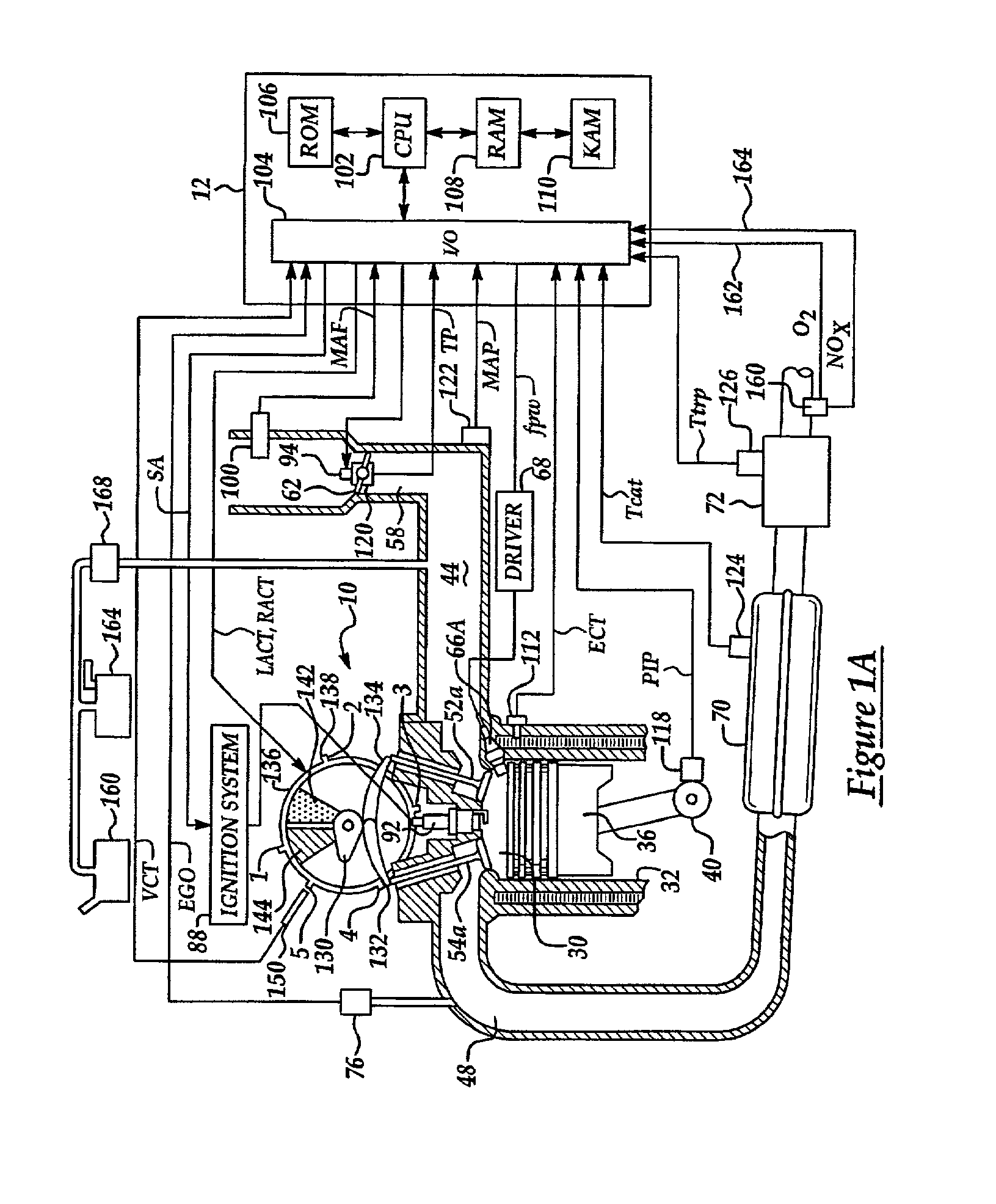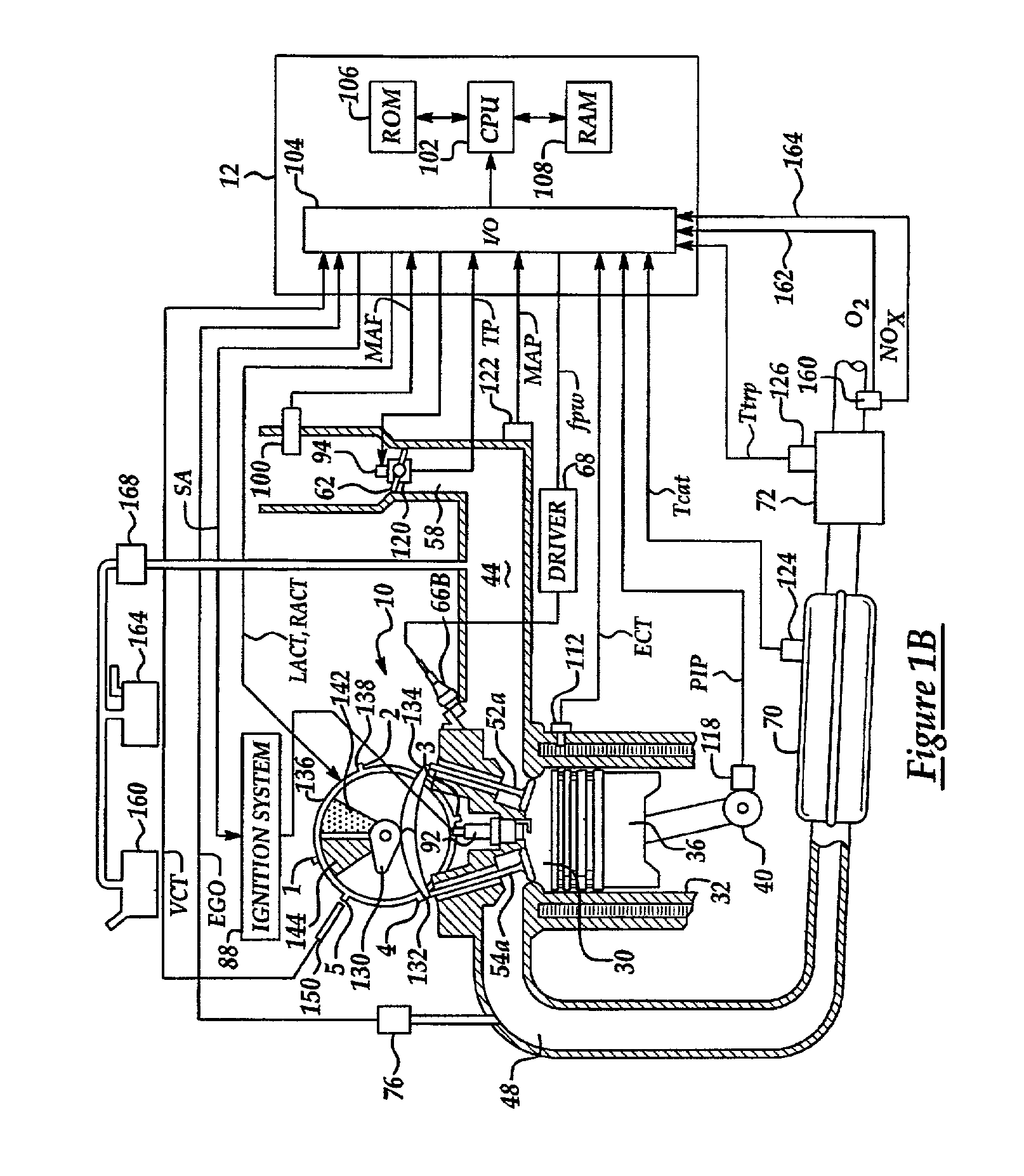Method to control transitions between modes of operation of an engine
a technology of engine and transition mode, applied in the direction of electrical control, process and machine control, instruments, etc., to achieve the effect of little torqu
- Summary
- Abstract
- Description
- Claims
- Application Information
AI Technical Summary
Benefits of technology
Problems solved by technology
Method used
Image
Examples
Embodiment Construction
, the first and second cylinder groups are operating with substantially the same air flow, fuel injection, and ignition timing. In particular, the first and second groups induct an air flow amount (a1), have injected fuel amount (f1), and have an ignition timing (spk1). In particular, groups 1 and 2 in Example 1 are operating with the air and fuel amounts in substantially stoichiometric proportion. In other words, the schematic diagram illustrates that the air amount and fuel amount are substantially the same. Also, the Example 1 illustrates that the ignition timing (spk1) is retarded from optimal timing (MBT). Operating in this way results in the first and second cylinder groups producing an engine torque (T1).
[0203] Example 2 of FIG. 13I illustrates operation according to the present invention. In particular, the ignition timing of the second group (spk2') is substantially more retarded than the ignition timing of the first cylinder group of Example 2 (spk2). Further, the air and ...
PUM
 Login to View More
Login to View More Abstract
Description
Claims
Application Information
 Login to View More
Login to View More - R&D
- Intellectual Property
- Life Sciences
- Materials
- Tech Scout
- Unparalleled Data Quality
- Higher Quality Content
- 60% Fewer Hallucinations
Browse by: Latest US Patents, China's latest patents, Technical Efficacy Thesaurus, Application Domain, Technology Topic, Popular Technical Reports.
© 2025 PatSnap. All rights reserved.Legal|Privacy policy|Modern Slavery Act Transparency Statement|Sitemap|About US| Contact US: help@patsnap.com



